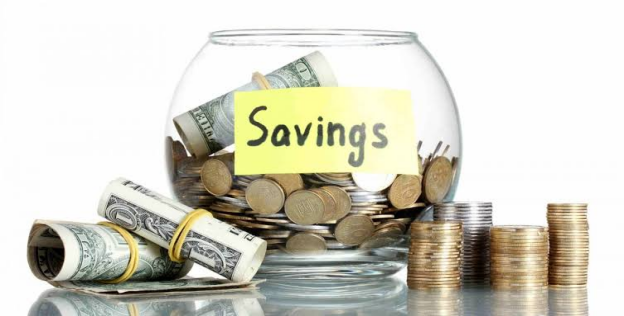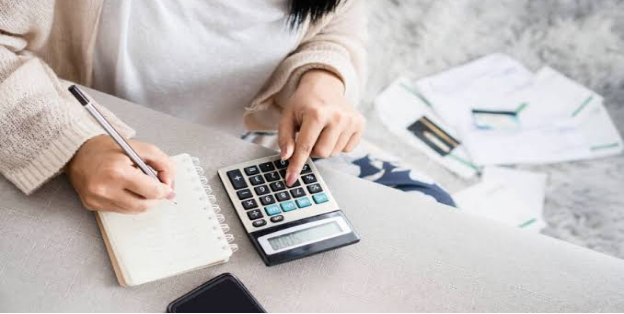Budgeting And Tracking Expenses
Are you on a budget? Have you tried to keep track of your spending? If not, take a moment to read and reflect on this article.
A spending plan is a necessary step in creating a budget. Making a budget and monitoring your spending will help you maintain financial security, one of the benefits of frugal living. You can save money through budgeting and tracking expenses. These are =money saving-hacks= that you should apply every day.
Do you know how to get a month ahead of bills? Well, you simply need to establish an efficient and practical budget.
Budgets are personal because they are made just for you based on your daily income and projected expenses. Various budgeting strategies might be successful for different people. When creating a budget, remember to account for both long-term and short-term objectives as well as living expenses to ensure effective results. A budget is useful as long as you adhere to it. Therefore, you should keep track of your expenses to evaluate your spending and make sure you are living according to your budget.
A budget is simply one part of the solution. If you want to move forward, you must act. If you fail to set up the proper goals that fit your budget, nothing will matter. Also, keep a spending journal so you can always keep tabs on your expenditures.
When making a budget, it’s essential to concentrate on both long-term and short-term goals because doing so will allow you to keep track of your income and choose the precise steps to balance your spending. Don’t rush, and take your time with each task. Make room in your budget for each goal. Manage your finances effectively. You can set savings for an emergency fund and car maintenance as well as savings to get a month ahead of your bills.
Definition Of One Month Ahead Of Bills
Getting a month ahead of bills means you’re saving up money in the bank to pay your next month’s bills. It is a bit challenging process. However, proper budgeting and tracking expenses are great ways to do it well. Anyone can accomplish it as long as they know how to save money.
If you ask how to meet your financial goals while preparing for your month’s bills, it all depends on how you evaluate your current financial situation. You can make a budget and begin saving money. You can keep track of your expenditures, make an instant strategy, and periodically review your financial goals. As you focus on your financial obligations, you won’t feel any stress or uncertainty.
If you pay your bills one month ahead of time, you will have enough time thview your expenses, create a sound budget, and modify your spending patterns before the next billing cycle. Additionally, it will help you efficiently manage your income. If we practice paying our bills a month in advance, we will also get better at doing so for other things that prevent us from going over budget or having a monthly shortfall.
Budgeting And Tracking Expenses
Everyone’s budgets shouldn’t be the same. Even though we may have similar underlying wants and needs, each of us has a unique set of circumstances. Budgeting is advantageous, but each person has their methods for doing it. We may consult other people’s budgets. However, not all budgets will be ideal for us. Therefore, budgets are personal.
Budgeting follows a set of rules. You can follow some guidelines, but keep in mind that these are merely suggestions. The most important thing is how we act and implement these rules for budgeting.
If you have a low salary and are already having trouble making ends meet, the idea of saving money could seem unreasonable. So, the majority of budgets place a high focus on saving money. Basic budgeting strategies are applicable every day. We can receive some techniques on how to budget properly and save money. Our dedication to adhering to a budget is what we need.
How To Use A Budget For Setting Goals
Setting goals is one of the useful ways we can develop a budget. By establishing targets, we can assess how well our budget is working. We could buy a new car, pay off a month’s worth of debt, or put money aside for our education. There is no restriction on the kind or amount. Goals guide the development of budgets. Be sensible and take each goal into account as a result.
How can I create a budget? What qualities make up an effective budget? Continue reading and let’s find out!
When creating a budget, accuracy is required. Along with how much money you will make, you must also evaluate how much money you will need to spend. Taxes, costs, and other deductions need to be taken into account as well. The key method for creating a living budget is the 50-30-20 rule. In this scenario, spend 50% of your money on necessities, 30% on lifestyle items, and 20% on savings. Avoid deducting any automatic or withholding deductions, such as health or retirement insurance premiums. These will be in your budget.
A budget guarantees that your spending is under control and that the progress of your savings is as anticipated. Budgeting helps with long-term goal-setting. Include your goals, even if you are unable to work toward them. You’ll be more motivated as a result. Your ability to limit your spending will be put to the test. You’ll succeed in doing this and secure your financial situation.
Use Your Budget To Guide What You Buy And How You Spend Money
How do you handle your money? Have you ever kept a spending journal? Did you know that keeping a spending journal can help you cut back on your spending, settle debt, and accomplish your financial goals? I guess, you need to reflect on it.
A spending journal allows you to record all of your daily financial transactions, similar to a diary. Keeping a spending journal may help you gain a better understanding of your spending habits and how to control your finances. Prioritizing what expenditure is required against what isn’t may be a useful strategy for you.
A spending journal can be helpful. Simply comparing the amount you have left to what you’ve already spent will let you put it to use. You can stop overspending if you practice it every day. By keeping a spending journal, you can practice budgeting. By examining how much money you make each month and where it goes, you can create a budget that works for you. At the end of the month, you can compare your initial budget to the actual utilization of your finances.
A budget is essential for effective money management. With the help of a budget, you can increase your wealth, save money, plan for the future, and lead a better lifestyle. So, read my article “How to Make a Budget” if you need assistance creating one.
How Your Budget Saves You Money
Money worries usually arise from trying to meet expenses through the end of the month, with bills serving as necessary expenditures. However, what if we begin getting ahead of bills by a month? In that way, we challenge ourselves to efficiently use our money while having an enormous relief after budgeting it all effectively. The benefits will become apparent more quickly the earlier we start.
You should create a budget, select the most effective budgeting method, decide how much money you need to save, cut back on unnecessary spending, carry over extra money to the following month, and increase your income to pay your debts and other bills before the due date. You don’t need to pay your bills in advance; you just have the money ready in the bank to cover your next month’s bills. By doing so, you’re practicing proper budgeting while saving money.
Every payday, you should set aside a certain amount for savings, unforeseen costs, and other uses. You could use these to help you get over any financial challenges in the future.
How Your Budget Can Save You More Money
Plan out your monthly spending at the beginning of the month. Write out your potential earnings and expenses. You have the flexibility to alter your spending habits or the amount you require. Even though you’ve decreased your out-to-eat spending, cut back on your monthly mobile data consumption, and started using coupons, your efforts to balance the household budget are undermined by the shockingly high water and electricity bills. Do you, therefore, desire to reduce your utility costs? Learn more by continuing to read.
- Electricity
The best way to save money is to use less energy. You can utilize solar panels, energy-star-certified appliances, and energy-efficient lightbulbs. Additionally, you can update all of your electronic devices. Timers, power strips, motion-detection switches, and other equipment can also aid in energy conservation.
- Water
The simplest ways to save money and lower water costs include purchasing an energy-efficient water heater, correcting leaks in taps and toilets, installing low-flow toilets, and taking shorter showers. You can live within your means in this way.
- Gas for the car
You can save money by driving less and using less gas. Avoid driving too fast and loading your car with stuff. Driving a fuel-efficient vehicle lowers your operating expenses throughout the vehicle’s lifetime. Fuel efficiency results in a variety of savings, all of which together amount to a sizable financial gain.
- Groceries
Making a plan for the meals for the week guarantees that you have a food list in hand when you visit the store. Because consumers typically spend up to 40% more when they don’t have what they need written down, a list is crucial.
The cost of groceries has reached absurd levels that make you want to cry. However, you don’t have to give up and ignore your spending plan. You’ll avoid any unpleasant surprises at the checkout counter if you keep an ongoing count of the amount of money in your cart. Additionally, set a challenge for yourself to explore your refrigerator or pantry to see what kinds of meals you can assemble with the things you currently own. By using the food you already have, you’ll save a lot of money, even if you still need to buy a few things. Think twice before making a large purchase, and always plan your shopping trips.
There are additional variable costs. Thus, you should take proactive measures to spend as little as possible on each variable expense. You should make and follow a detailed budget. You can allocate money effectively, find areas where you can make potential savings, and order your financial goals by using a budget cost-tracking system. If you consciously spend your money, you should direct the money you don’t use to other goals or a fund to pay your debts one month in advance. You won’t experience tension as a result of having to pay your bills and other obligations.
Small Amounts Add Up
Saving even a small amount of money over time has the potential to grow into a sizeable sum. If you tend to buy things on impulse, make it a rule to wait 24 hours before making a purchase. After a day, you might lose interest in getting it. Also, think about emptying your pockets each day at the end of the day and conserving spare change. If you set aside 10% of each salary for ten paydays, you will have one payday’s worth of wages saved.
Just because you have money doesn’t mean you have to spend it. Before making any purchases, confirm that you have sufficient funds on hand to meet your expenses. So, before you purchase, consider your goals. You should hold on to and save any excess cash you may have. If you continue the procedure, it will eventually add up to a sizeable sum of money.
Double Your Savings
Some people believed that saving a lot of money for living needs while also investing was the best way to get wealthy. Maybe it’s true. However, that doesn’t mean you disregard the minor details. Remember that little things add up and that even a small amount saved can help you reach financial security.
Getting a side job is a good way to double your savings. It increases your income, even if it’s only by $100 a month. Additionally, if you set a budget, you may be able to earn a lot more money each month, which will make it simpler to pay off debts, save money, and just overall breathe a bit better.
Your savings may be the key to achieving your goals. Setting saving objectives will assist you in concentrating on your priorities and carefully considering each expenditure you make. Make it as easy as you can to save money. Set modest objectives to build upon. Use the funds carefully to save for the objective or goals you have chosen.
Conclusion
Budgeting and tracking expenses promote accountability and financial transparency. It allows us to save money and live frugally. Through budgeting, we will be guided on what to buy and how to spend money. On the other hand, by tracking expenses, we can monitor our spending daily. It enables us to stay within our budget limits. We can avoid overspending while aiming to achieve financial security.
Saving money is the cornerstone of financial success. It allows us to enjoy greater security in life. Savings, as opposed to investing, which typically entails risk, are secure, accessible, and safe. As a result, we won’t have to worry about having enough money to cover our bills and other urgent needs. Thus, To achieve better results, we just need to adopt a critical mindset and sensible financial practices.





